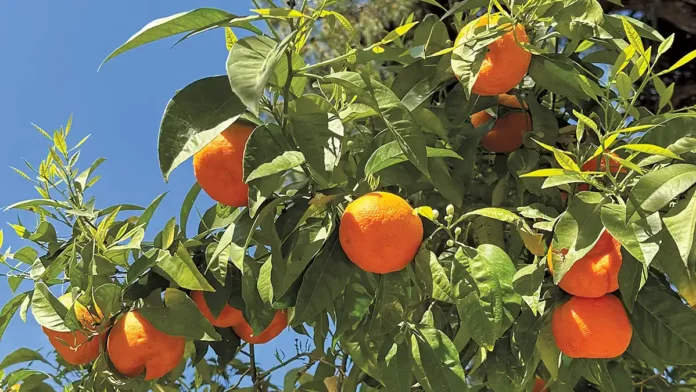
Hope your 2024 is off to a good start! After the holidays and ringing in the new year, we feel refreshed and renewed, with a new resolve to make this the best year ever! And what could be more refreshing than the bright, tangy, juicy flavors of citrus fruits, the wonders of winter!
Citrus fruits, with their beautiful colors and varied flavors bring a brightness to the otherwise often cold and dreary winter months.
All over Greece, it feels as though the smell of different citrus fruits perfume the air – bitter oranges around Athens, citron throughout Naxos, kumquats across Corfu, lemons permeating Poros… the list goes on and on.
Beyond the intoxicating aromas, citrus fruits are a quintessential part of Greek cuisine, so it’s hard to believe that all of these incredible varieties are not native to Greece…nor anywhere in the world for that matter!
In fact, there are only three original citrus fruits from which ALL others were bred: Citron, Pomelo, and Mandarin.
It is thought that the citron fruit was first introduced to Greece by Alexander the Great from his campaign in the east dating back to the 4th century BC, where they could be found in Persia, having spread there from Asia.
On the other hand, pomelo, lemons, and oranges did not come to Greece until around the 10th century AD, where they rapidly flourished due to the perfect climate the Mediterranean provides.
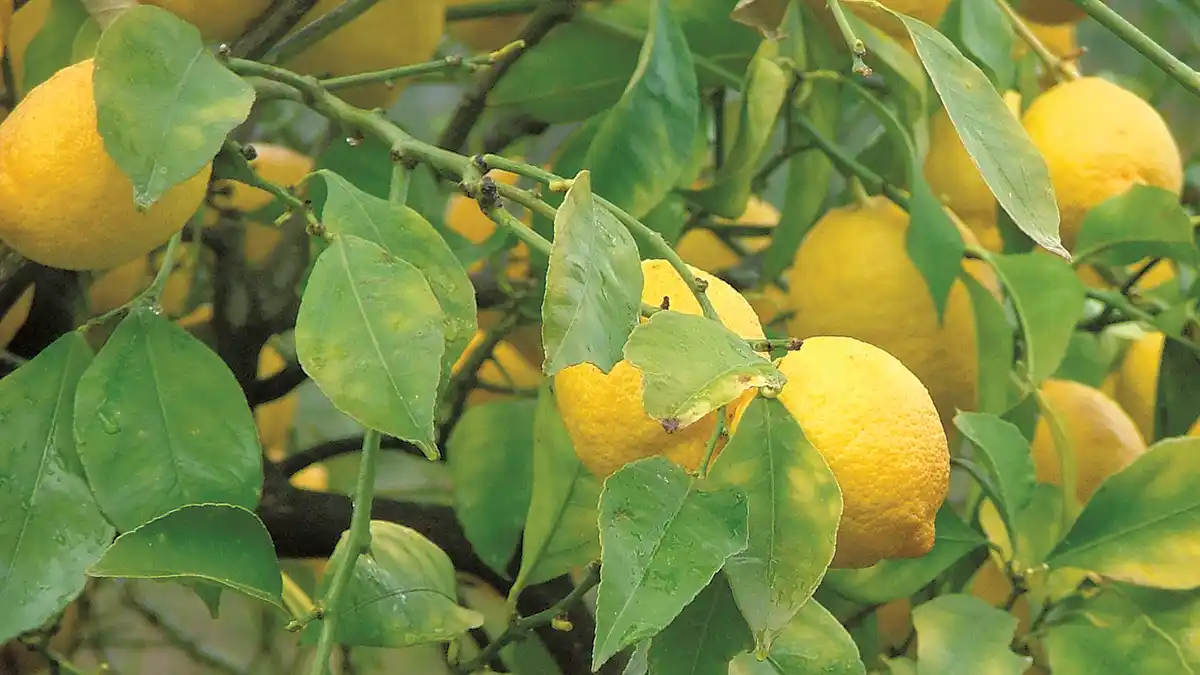
All that being said, in the myth about Hercules and his 12 labors (quests) to become a god on Mount Olympus, the 11th labor refers to ‘the apples of Hesperides’, which were said to actually be oranges.
While we’ll never know whether this is based on truth or not, in Greek we refer to citrus fruits collectively as ‘hesperidoeidi’, clearly derived from this myth… I leave this for you to ponder…
Table of Contents
So Many Citrus Fruits, So Little Time
From the original three citrus fruits, every other citrus fruit on the planet was bred. Some through natural cross pollination, and others through selective pollination.
It’s hard to believe, and yet many of the most prized fruits we eat – bananas, watermelon, even peaches – were completely different millennia ago, in the wild.
Nevertheless, lemons and oranges quickly became staples of Greek cuisine. As the ancient Greeks loved using vinegar and other tart fruit juices like pomegranate and unripe grapes to offer acidity, Greeks quickly adopted the sour brightness that lemons provided as the new culinary default.
There is no Greek meal that doesn’t include lemon squeezed upon it to offer an acidic kiss of perfection, bringing the perfect balance to the plate.
Some of the most essential and iconic sauces are dependent on lemon, such as avgolemono (an egg-lemon emulsion) used as a thickening agent for soups and stews lending a bright creaminess to dishes, or as a sauce unto itself; and ladolemono (a combination of extra virgin olive oil and fresh lemon juice, often with an added pinch of dry oregano) which goes on everything from fish, chicken, and meat to salads, cooked vegetables, and bean dishes like fava (split yellow peas grown in the volcanic soil on Santorini).
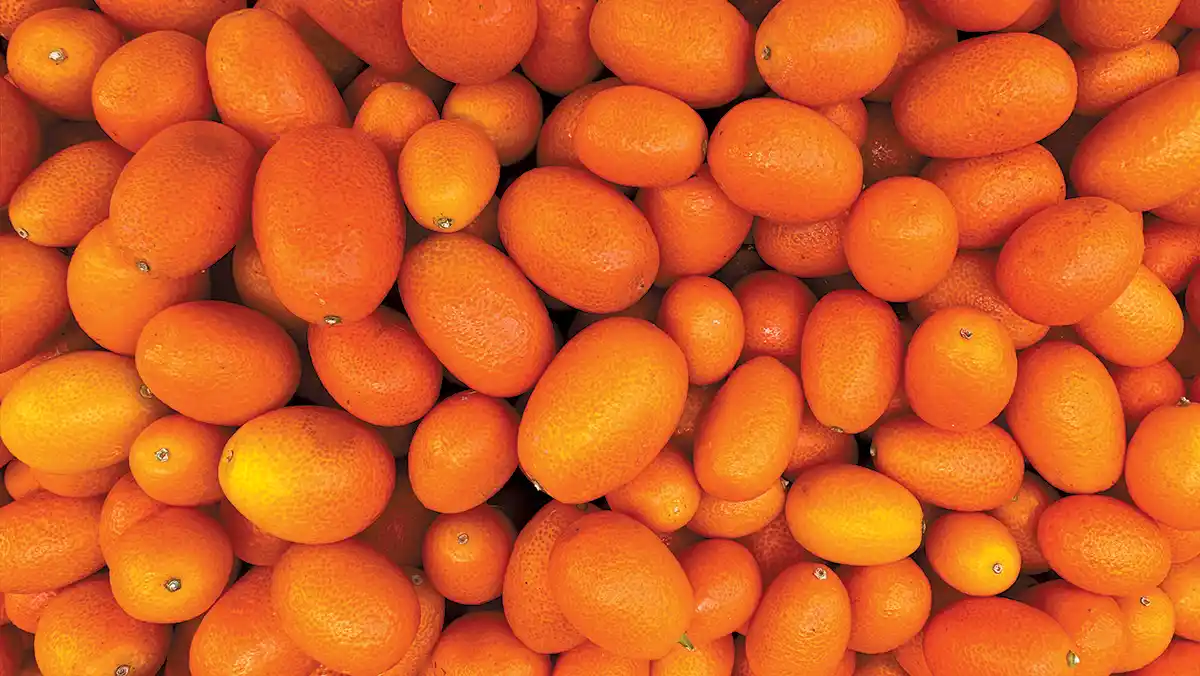
While lemons are used in both savory and sweet dishes, oranges are vital to the incredible array of desserts and sweets we Greeks make.
Many of our desserts require siropi – a simple syrup made with either sugar or honey – most are made with the peels of oranges along with cinnamon and clove to imbue a spiced citrus flavor to the syrup, which will in turn, infuse the desserts themselves.
We have Portokalopita, an orange cake made with crumbled phyllo dough instead of flour, and Lemonopita, it’s lemon-loving counterpart; Melomakarona, traditional walnut-honey cookies made with orange juice and zest; Yiaourtopita, a vibrant yogurt cake made with orange zest; and of course the vast and varied Glyka Tou Koutaliou, spoon desserts made from every fruit under the sun, especially sweet oranges, bitter oranges, citron, kumquats, mandarins, tangerines, clementines, grapefruit, lemons, and limes!
When Life Gives you Lemons… Make Spoon Desserts!
In Greece, the scent of citrus is always in the air. Where I grew up, near Lake Trichonida, there were groves upon groves of different citrus trees – citron, bitter orange, sweet orange, and of course, lemon.
While the rest of my siblings loved the edible flesh of these fruits – especially the oranges, my favorite part were the peels. I love the bitter flavor of the pith, and the delicate, subtle burst of the essential oils permeating my mouth as I bit into them.
Citron’s flesh is particularly bitter (and thick), and I would always challenge my older siblings to see who could eat more of the fruit…which was always me!
When my mother would make the traditional spoon desserts, she would give my siblings the flesh of the fruit after removing the peels, and I would always offer to help her so I could sneakily grab a piece or two of the peels throughout the different stages of the cooking process.
As my preferred taste was bitter, I loved them fresh as we rolled them up and thread them on kitchen twine (so they would retain the coiled shape), during the first boil to remove the bitterness, and the second boil to continue the process.
But, by the time they went into the syrup to absorb the sweetness and become a dessert, I wouldn’t touch them! My mother always found this to be funny, a child avoiding sweets, but I was always full of surprises – that was me! And if I’m being honest, I still don’t have a big sweet tooth…
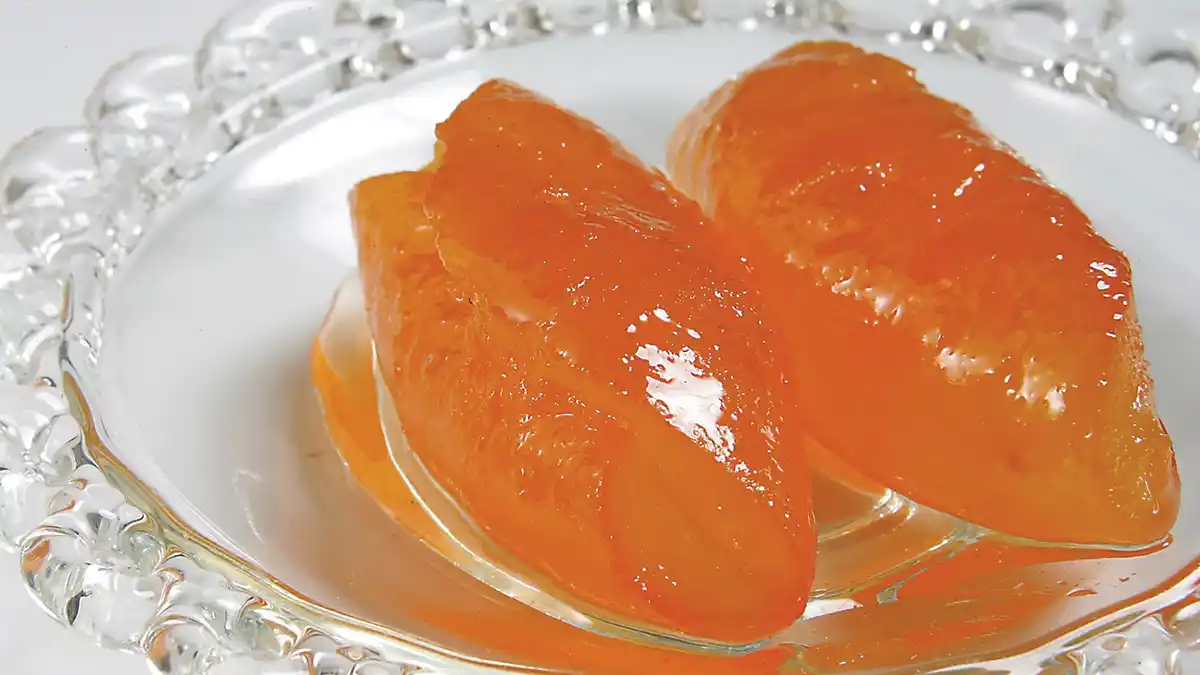
Though I love and cherished both of my parents, I was definitely a ‘daddy’s girl’.
One day, my father and I were having a heart to heart, and he said to me, “You know that someday I won’t be here anymore…but you know how much I love you, and I know how much you love oranges – I want you to always be able to have fresh orange juice whenever you come back to the village when you’re older, so I planted a special tree next to your special garden just for you…As you grow up, this tree will too, and it will always provide you with your favorite fruit all year round, so you can always enjoy it and think about how much I love you.”
Even today, my orange tree still stands tall next to where my personal garden was outside my childhood bedroom. Whenever I see it, I think of that special moment with my father and remember how much he loved me.
Vitamin C for All
My papou (grandfather in Greek) never had to tell me or my siblings to eat our fruits, especially in the winter, also known as citrus season. It’s like our bodies knew that this was the time to enjoy the juicy segments, and with good reason!
Citrus fruits are loaded with Vitamin C, soluble fiber, and other important plant compounds and antioxidants that are essential to our health by providing anti-inflammatory and antioxidant effects, boosting immunity, improving digestion, lowering cholesterol, lowering blood pressure, and improving heart health. But remember, before changing your diet, always speak with your doctor.
A Citrus for Every Dish
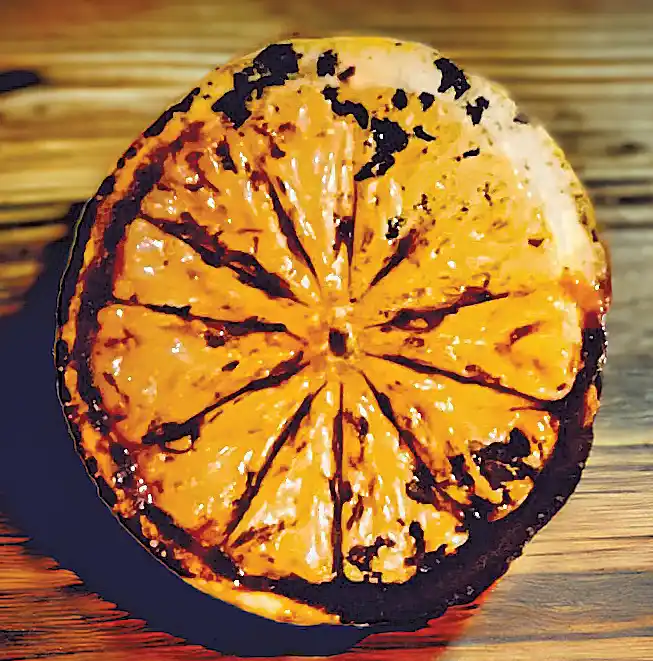
During the winter, it’s easy to find a plethora of hearty, heartwarming dishes on menus around the world.
Colder weather gives us the opportunity to spend time by the warmth of the stove, braising and stewing to our hearts’ content, building layers upon layers of flavor.
Try adding some citrus to the braise or stew itself, and/or adding the zest of lemon (or another citrus fruit) to finish a dish – it perks it right up and balances out those deep, unctuous flavors with a hit of acid to bring it all together!
Winter salads full of peppery, bitter greens benefit from citrus suprêmes (a technique that removes the membrane from citrus fruit segments so it can be served in slices) like grapefruit, blood orange, or clementines.
Grilling or searing citrus halves dial up the sweetness and the juiciness, making them the perfect garnish for guests to squeeze on proteins at will – and the beautiful char on the pith is gorgeous as well!
As for sides, the anise-y sweetness of fennel (whether shaved raw, or grilled in quarters) is complemented perfectly by a sweet orange, like the simple naval or cara-cara variety, and a hit of fresh herbs.
Or try some lightly charred kale with some sweet heat from a chili oil infused dressing made with a mélange of citrus fruits and a touch of mustard – you won’t regret it!
And of course, the dessert possibilities are endless. Think about candying the citrus peels from the suprêmes prepared for the salads; or making any kind of citrus curd to dollop atop a simple lemon-infused olive oil cake; or making a dessert salad with a variety of different colored citrus fruits tossed with some fresh mint and a fantastic, fruit forward extra virgin olive oil!
Wonders of Winter
Though winter is a cold, dark, dreary time of the year, nature’s gift of bright, beautifully hued, juicy citrus fruits with their unique flavor profiles and incredible health benefits are just what we need to see the light – it’s no wonder these fruits are known as the wonders of winter!
All photo credits are Chef Loi, except the Lemon Tree (credit Giannis Giannakopoulos)
























